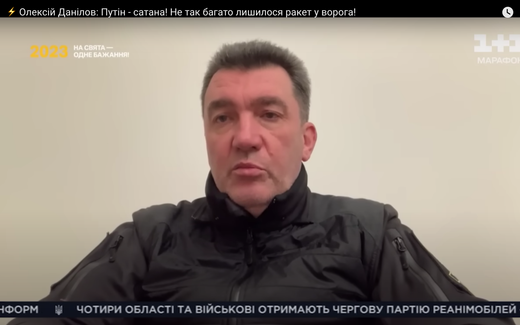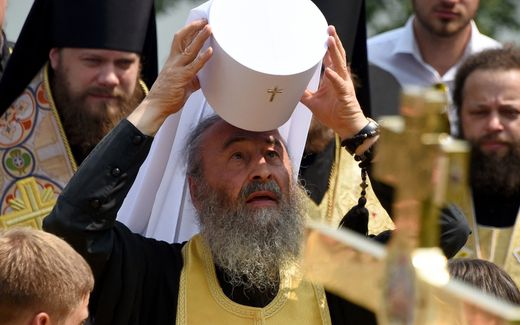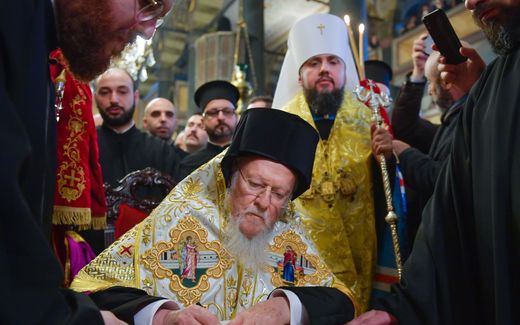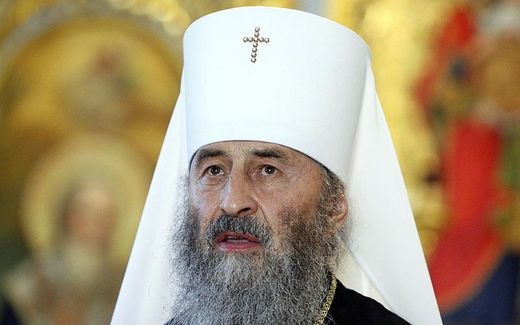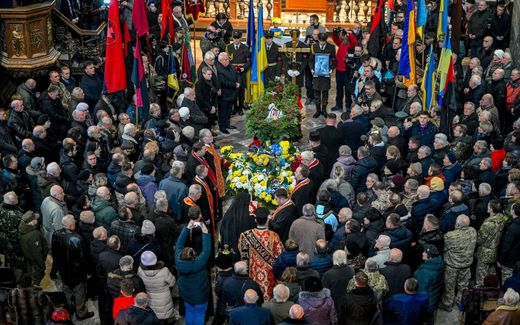No doubt, a ban on Ukraine church will be divisive
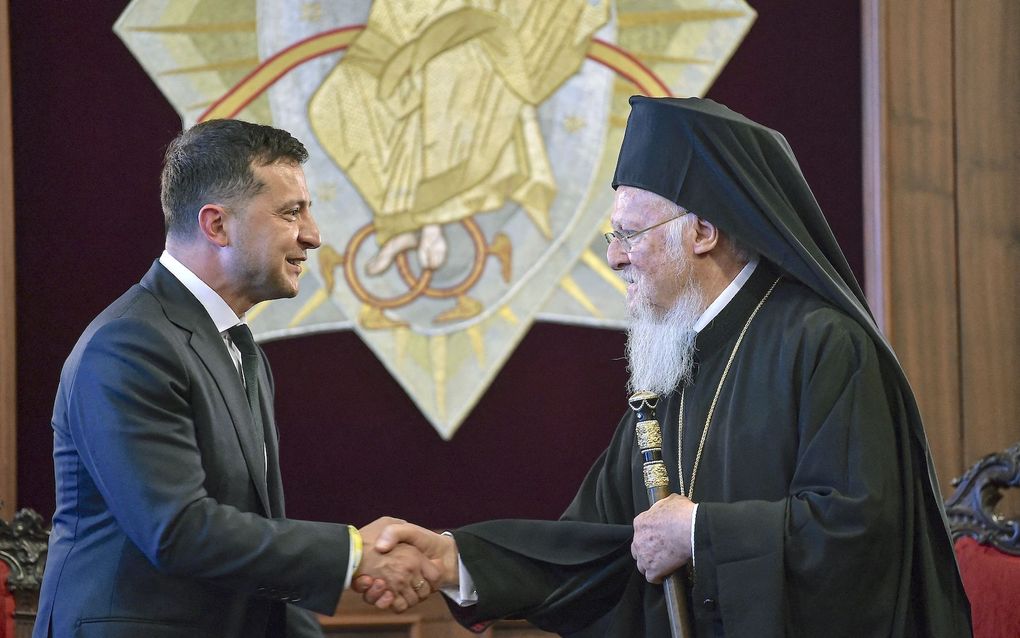
President Zelensky (left) met the Patriarch of Constantinople, Bartholomew, in 2019. He never met the Patriarch of Moscow. Photo AFP, Ozan Kose
Eastern Europe
Reformed people in the Netherlands have long been slammed for causing a church schism, even in wartime in 1944. Wouldn’t they have been better off defending the country than fighting with each other over children’s baptism?
Ukrainian President Zelensky may also receive similar accusations in a while. By announcing his intention to ban churches under Russian influence, he has stirred up a lot of tension. Churchgoers from conflicting groups have already clashed to get into the building.
Ever since the Russian invasion in February, questions have been raised about the Ukrainian Orthodox Church’s (UOC) allegiance to the national cause. The highest bishop in Kyiv, Metropolitan Onufri, may have condemned the invasion, but still. After all, the church was still attached to the patriarchate in Moscow.
Now the latter says little, at least administratively. The Orthodox churches are independent. That is very different from the Roman Catholic Church.
But at the same time, of course, that link with Moscow says a lot. A large part of the clergy was educated in Moscow and is thus under the influence of the “Russian world”.
Russian world
House searches in recent weeks have found material confirming fears that at least some clerics share the Russian ideology. This is the idea that the Orthodox Church is tasked with preserving Russian civilisation, the so-called “Russian world”.
As a Protestant, I tend to think: wouldn’t that church instead stick to preaching the Gospel, rather than be enslaved by a national ideal? But who am I, far away from the Russian world?
The New York Times reported last week that judges have found at least 30 Ukrainian Orthodox clergymen guilty of spying for the Russians.
If this is true, it proves two things:
First, there are indeed many rotten apples in the church.
Second, that existing legislation is sufficient to deal with this.
If Zelensky sticks to limiting the Ukrainian Orthodox Church, it will bring enormous division. After all, this is the group with the most parishes and clergy. Which, by the way, does not alter the fact that most of the population distrusts this church. But still, a division is guaranteed.
Loyalty
As far as I understand the situation, I think it is reasonable that the Ukrainian church has to accept that during this conflict, it will be asked where its loyalties lie: in Moscow or Kyiv. But that the church as a whole is undermining Ukraine’s independence seems difficult to prove. The great help that the church is still giving to the army at least suggests the opposite.
Reading this church news from Ukraine, I am reminded of some things that happened in Western Europe in the past. Over the centuries, Jews have been asked about their national allegiance because, after all, their people lived in several countries. In our time, this is even stronger because of the existence of the Israeli state. Jews rightly say that this smells of anti-Semitism. And further, Roman Catholics have been accused of not being good patriots because their allegiance was to the Vatican state.
Criminal organisation
To be honest, what Zelensky is doing is similar to this. Because Ukraine is a member of the Council of Europe, such a ban will sooner or later end up at the European Court of Human Rights (ECtHR) in Strasbourg. That will almost certainly reject such a ban. Europe knows the freedom of religion and the liberty of organisation. Only a criminal organisation can be forbidden. And to prove that a people’s church is a criminal enterprise is very difficult.
Therefore, Zelensky is better off saving himself the trouble already.
Related Articles


